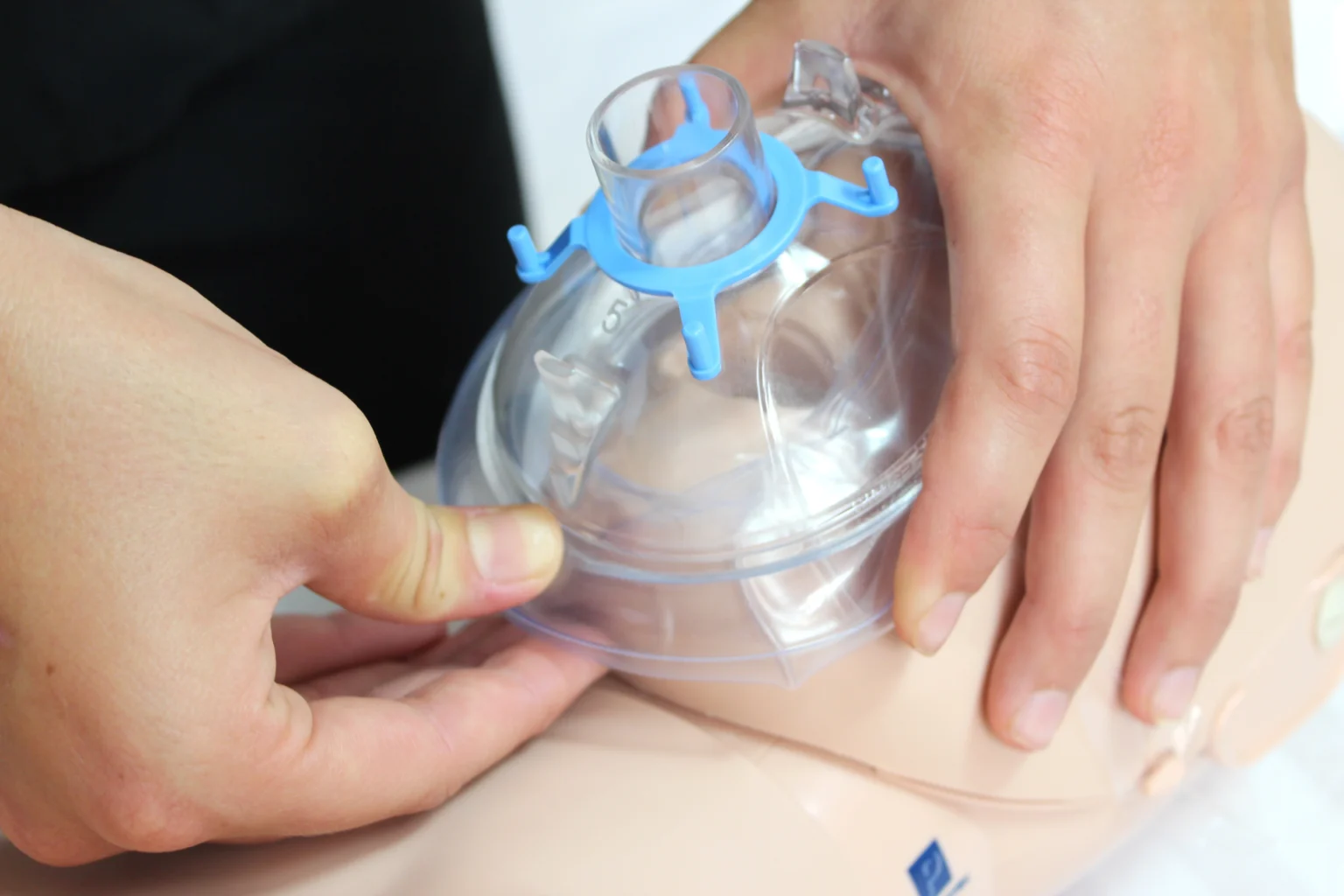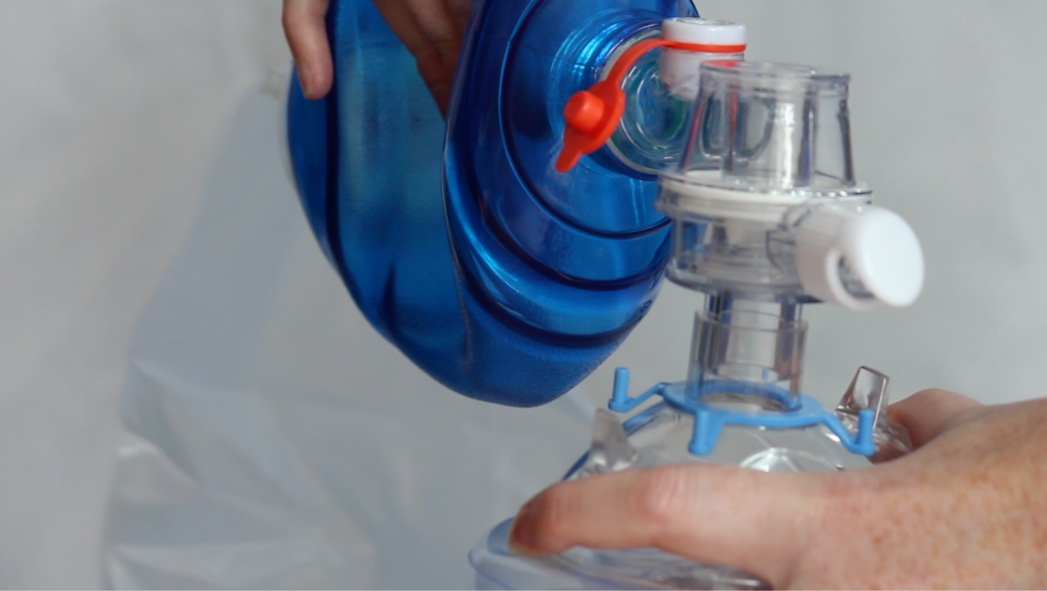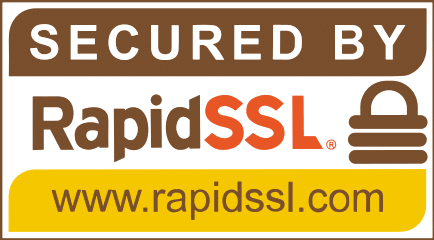Child/Infant Mouth-to-Mask Ventilation
In one-rescuer CPR, breaths should be supplied using a pediatric pocket mask, if available.
- Deliver 30 (or 15 if there are two providers) high-quality chest compressions while counting out loud.
- Seal the mask against the child’s face by placing four fingers of one hand across the top of the mask and the thumb of the other hand along the bottom edge of the mask (Figure 47).

- Using the fingers of your hand on the bottom of the mask, open the airway using the head-tilt/chin-lift maneuver. (Don’t do this if you suspect the child may have a neck injury).
- Press firmly around the edges of the mask and ventilate by delivering a breath over one second as you watch the child’s chest rise.
- Practice using the pocket mask; it is essential to form a tight seal in delivering effective breaths.
Child/Infant Bag-Valve-Mask Ventilation in Two-Rescuer CPR
If two people are present and a bag-valve-mask device (BVM) is available, the second rescuer is positioned at the victim’s head while the other rescuer performs high-quality chest compressions.
- Deliver 15 high-quality chest compressions while counting out loud.
- The second rescuer holds the BVM with one hand using the thumb and index finger in the shape of a “C” on one side of the mask to form a seal between the mask and the face (Figure 48), while the other fingers open the airway by lifting the child’s lower jaw.

- The first rescuer squeezes the bag giving two breaths over one second each. Watch for chest rise.
- Practice using the BVM; it is essential to form a tight seal in delivering effective breaths.





